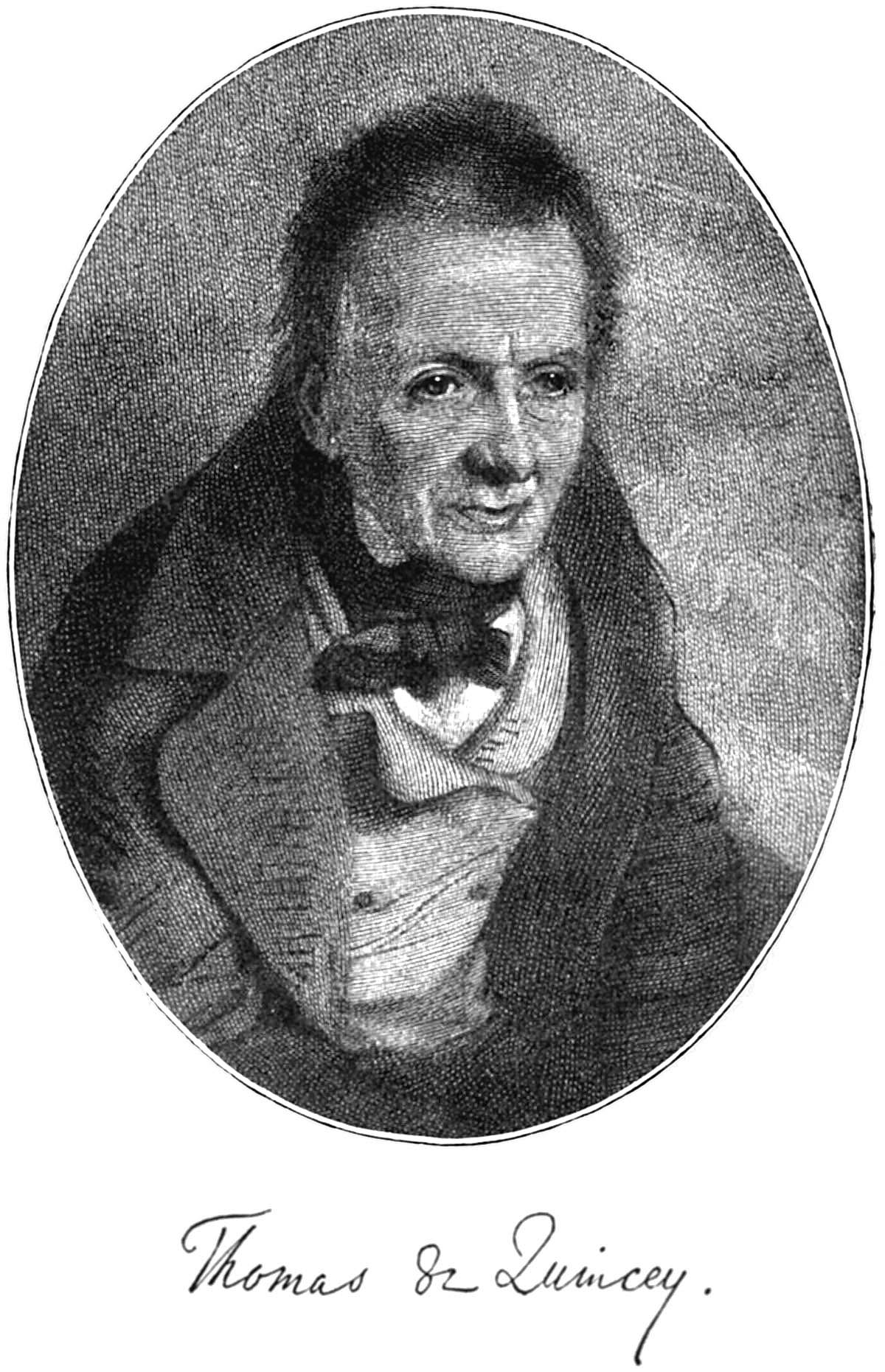“Thou hast the keys of Paradise, oh just, subtle, and mighty opium!”
Pt. II.
Confessions of an English Opium-Eater (1822-1856)
Thomas Penson De Quincey was an English essayist, best known for his Confessions of an English Opium-Eater . Many scholars suggest that in publishing this work De Quincey inaugurated the tradition of addiction literature in the West. Wikipedia

“Thou hast the keys of Paradise, oh just, subtle, and mighty opium!”
Pt. II.
Confessions of an English Opium-Eater (1822-1856)
“A promise is binding in the inverse ratio of the numbers to whom it is made.”
Appendix.
Confessions of an English Opium-Eater (1822-1856)
Pt. I.
Confessions of an English Opium-Eater (1822-1856)
Pt. I.
Confessions of an English Opium-Eater (1822-1856)
“Dyspepsy is the ruin of most things: empires, expeditions, and everything else.”
Letter to Hessey (1823).
"A Second Paper on Murder Considered as One of the Fine Arts" (1839). Source: Thomas de Quincy. On Murder (Oxford: Oxford UP, 2006), 84
“Everlasting farewells! and again, and yet again reverberated—everlasting farewells!”
Pt. III.
Confessions of an English Opium-Eater (1822-1856)
Pt. I.
Confessions of an English Opium-Eater (1822-1856)
Pt. II, Recalling the day in 1804 when he first took opium.
Confessions of an English Opium-Eater (1822-1856)
Confessions of an English Opium-Eater (1822-1856)
Pt. I.
Confessions of an English Opium-Eater (1822-1856)
“In many walks of life, a conscience is a more expensive encumbrance than a wife or a carriage.”
Confessions of an English Opium-Eater (1822-1856)